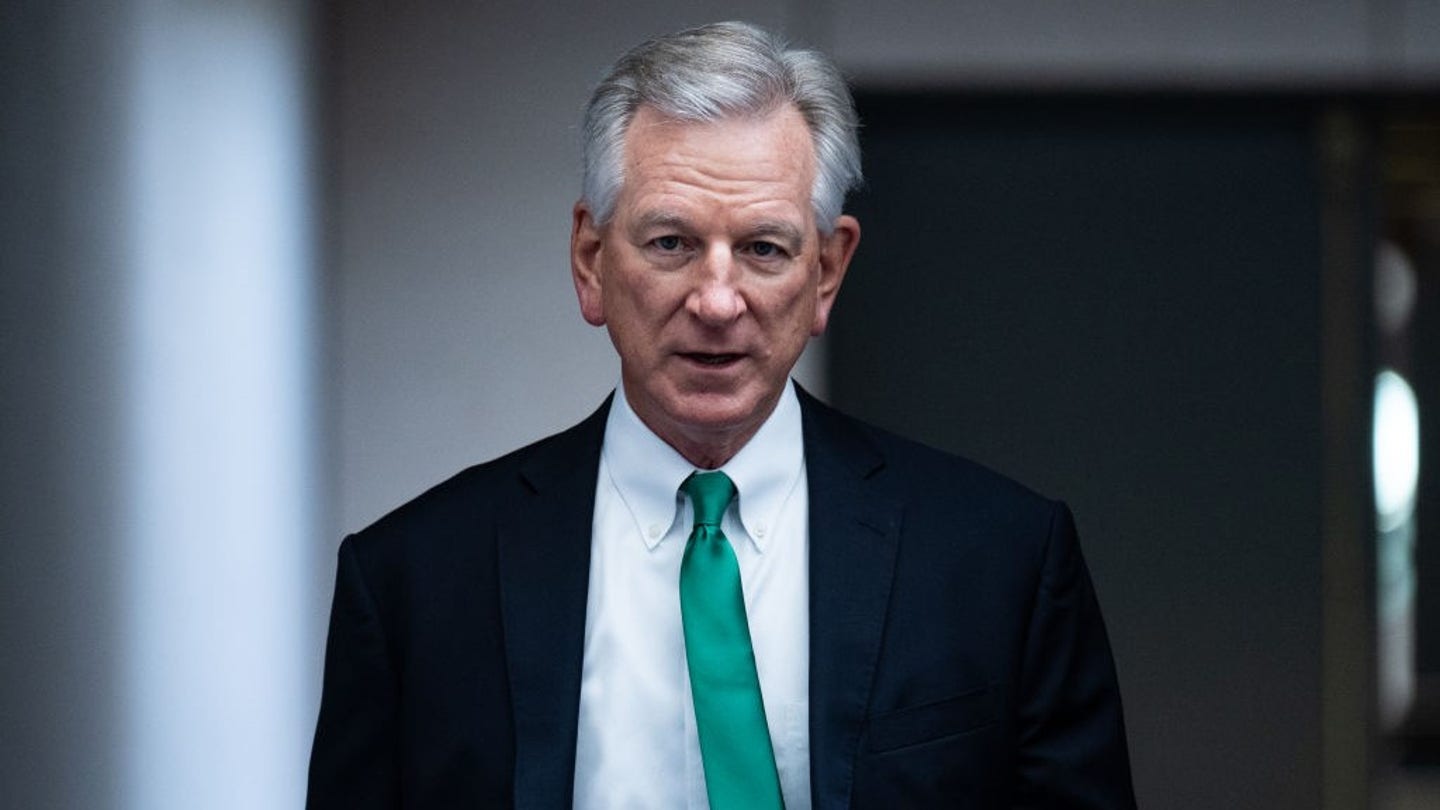
Mike Trout testifies in case of former teammate Tyler Skaggs' death from drug overdose
Entities mentioned:
- Mike Trout: Duty, Loyalty, Professional pride
- Los Angeles Angels: Self-preservation, Righteousness, Control
- Tyler Skaggs: Recognition, Self-preservation, Greed
- Eric Kay: Greed, Self-preservation, Power
- Skaggs' family: Justice, Revenge, Moral outrage
Article Assessment:
Credibility Score: 75/100
Bias Rating: 55/100 (Center)
Sentiment Score: 25/100
Authoritarianism Risk: 20/100 (Strongly Democratic)
Bias Analysis:
The article presents a balanced view of the situation, including perspectives from multiple parties involved. It relies on court testimonies and official statements, maintaining a neutral stance in reporting the facts.
Key metric: MLB Player Health and Safety Standards
Let me tell you something - this story is a GAME-CHANGER! The Los Angeles Angels are in the fight of their lives, facing a $118 million lawsuit that could shake the very foundations of their franchise. Mike Trout, the MVP slugger, has stepped up to the plate in the courtroom, swinging for the fences with his testimony. This is the bottom of the ninth, folks, and the Angels are down to their last out! The Skaggs family is bringing the heat, accusing the team of dropping the ball on player safety. It's a high-stakes match where there are no winners, only survivors. The revelation about players paying for stunts is like a curveball nobody saw coming - it's RIDICULOUS! This trial is going into extra innings, and I'm telling you right now, it's going to test the Angels' championship mentality. Will they strike out or hit a walk-off home run in the courtroom? Stay tuned, sports fans, because this legal slugfest is far from over!

MyKayla Skinner opens up on joining 'Save Women's Sports' movement after Simone Biles feud
Entities mentioned:
- MyKayla Skinner: Righteousness, Justice, Self-preservation
- Simone Biles: Competitive spirit, Pride, Influence
- Riley Gaines: Justice, Determination, Moral outrage
- XX-XY Athletics: Righteousness, Influence, Professional pride
Article Assessment:
Credibility Score: 65/100
Bias Rating: 70/100 (Lean Right)
Sentiment Score: 40/100
Authoritarianism Risk: 30/100 (Generally Democratic)
Bias Analysis:
The article leans right due to its focus on conservative figures and causes. It presents the 'Save Women's Sports' perspective more favorably, with limited counterarguments.
Key metric: Women's Sports Participation Rate
Let me tell you something - this story is a GAME-CHANGER in the world of women's athletics! We're seeing a major power play unfold as former teammates MyKayla Skinner and Simone Biles square off on opposite sides of the court. Skinner's joining the 'Save Women's Sports' roster is like a blockbuster trade that could shift the entire balance of the league! This isn't just a fourth-quarter move, folks - it's a full-court press on one of the most controversial issues in sports today. Skinner's stepping up to the plate after facing her own personal foul from online attackers, showing the true grit of a champion. Meanwhile, Biles finds herself playing defense after a social media fumble that put her on the wrong side of the fan base. This matchup is heating up faster than a two-minute drill, and I'm telling you right now, the implications for women's sports could be as big as a Super Bowl win!

US Olympic medalists MyKayla Skinner and Nancy Hogshead join activist sportswear brand XX-XY Athletics
Entities mentioned:
- MyKayla Skinner: Justice, Righteousness, Professional pride
- Nancy Hogshead: Justice, Competitive spirit, Legacy
- XX-XY Athletics: Justice, Competitive spirit, Righteousness
- Simone Biles: Pride, Influence, Recognition
- Riley Gaines: Justice, Competitive spirit, Determination
Article Assessment:
Credibility Score: 75/100
Bias Rating: 70/100 (Lean Right)
Sentiment Score: 65/100
Authoritarianism Risk: 35/100 (Generally Democratic)
Bias Analysis:
The article leans right, focusing heavily on one side of the transgender athlete debate. It presents the issue from the perspective of those opposing transgender participation in women's sports, with limited counterarguments.
Key metric: Women's Sports Participation Rate
Let me tell you something - this story is a GAME-CHANGER! We're seeing a major league shift in the world of women's athletics, folks! MyKayla Skinner and Nancy Hogshead are stepping up to the plate, joining forces with XX-XY Athletics in what could be the ultimate power play to protect the integrity of women's sports. These Olympic champions are bringing their A-game, folks, showing the kind of team spirit and competitive fire that made them legends on the world stage. They're not just playing defense here - they're going on the offensive, taking on the challenge of transgender athletes in women's sports head-on. This is fourth quarter, championship-level strategy we're seeing! The addition of these gold medal contenders to XX-XY's roster is like drafting two first-round picks - it's a clear signal that they're in it to win it. And let's not forget the rookies joining the squad - we've got rising stars like Jaycee Bassett bringing that fresh energy and determination. This is the kind of lineup that could change the game forever, folks! It's a whole new ballgame in the fight for fair play in women's athletics!
Legal defense to 'Save Women's Sports' granted right to make argument to SCOTUS amid trans athlete dispute
Entities mentioned:
- Idaho Attorney General Raul Labrador: Justice, Determination, Competitive spirit
- Lindsay Hecox: Ambition, Self-respect, Freedom
- Supreme Court: Justice, Duty, Influence
- ACLU: Justice, Righteousness, Determination
Article Assessment:
Credibility Score: 75/100
Bias Rating: 55/100 (Center)
Sentiment Score: 45/100
Authoritarianism Risk: 30/100 (Generally Democratic)
Bias Analysis:
The article presents both sides of the argument, quoting from multiple perspectives. While it gives slightly more space to the 'Save Women's Sports' side, it maintains a relatively balanced approach overall.
Key metric: Gender Equality in Sports
Let me tell you something, folks - this legal battle is turning into a CHAMPIONSHIP SHOWDOWN! We've got Team Labrador stepping up to the plate, ready to swing for the fences in defense of women's sports. Meanwhile, Team Hecox is trying to pull a last-minute substitution, but the Supreme Court isn't calling a time-out just yet! This is a fourth-quarter play that could change the entire game plan for athletes across the nation. The stakes couldn't be higher as we head into overtime, with both sides showing true grit and determination. It's anyone's match at this point, and I'm telling you right now, this ruling could be the game-changer that defines the future of competitive sports!

Former ESPN employee says middle school daughter faced 'an obviously naturally born boy' in basketball game
Entities mentioned:
- Sam Ponder: Righteousness, Moral outrage, Determination
- Transgender Athletes: Recognition, Competitive spirit, Self-respect
- Donald Trump: Power, Control, Influence
- New York City: Unity, Freedom, Wariness
Article Assessment:
Credibility Score: 65/100
Bias Rating: 75/100 (Lean Right)
Sentiment Score: 30/100
Authoritarianism Risk: 55/100 (Mixed/Neutral)
Bias Analysis:
The article leans right, primarily quoting conservative voices and framing the issue from their perspective. It presents transgender participation in sports as problematic without offering counterarguments or scientific evidence.
Key metric: Gender Equality in Sports
Let me tell you something - this story is a GAME-CHANGER in the world of youth sports! Sam Ponder has stepped up to the plate, swinging for the fences on the hot-button issue of transgender athletes in girls' sports. She's not just talking the talk, folks - she's walking the walk as her own daughter faces this challenge on the court! This isn't just a pickup game we're talking about - it's a full-court press on the future of fair play in women's athletics! The ball is in New York City's court now, and they're playing defense without a playbook. Meanwhile, President Trump is running a full-court press with his executive order, but some states are pulling a fast break, dodging his defensive line. I'm telling you right now, this is the kind of fourth-quarter drama that could change the game for generations to come!

Tel Aviv soccer derby canceled by police due to ‘violent riots’
Entities mentioned:
- Hapoel Tel Aviv: Competitive spirit, Pride, Indignation
- Maccabi Tel Aviv: Competitive spirit, Pride, Self-preservation
- Israel Police: Control, Security, Duty
- West Midlands Police: Security, Control, Wariness
- Keir Starmer: Justice, Righteousness, Duty
Article Assessment:
Credibility Score: 75/100
Bias Rating: 50/100 (Center)
Sentiment Score: 25/100
Authoritarianism Risk: 40/100 (Generally Democratic)
Bias Analysis:
The article presents multiple perspectives, including police statements and team responses. It provides context with previous incidents, maintaining a balanced approach to the situation.
Key metric: Public Safety at Sporting Events
Let me tell you something, folks - this is RIDICULOUS! The Tel Aviv derby just got red-carded before the opening whistle! We're talking about a championship mentality clash between Hapoel and Maccabi that turned into an all-out brawl in the stands! The police came in like a defensive line, but instead of containing the play, they shut down the whole stadium! This is a GAME-CHANGING move that's gonna echo through the league. Now, you've got Hapoel crying foul, saying the cops were suited up for war, not a sporting event. Talk about unnecessary roughness! And let's not forget, Maccabi's already benched for their away game against Aston Villa. These teams are facing a serious penalty situation that could affect their whole season. I'm telling you right now, this is fourth quarter, do-or-die time for soccer safety in Israel. The league needs to step up to the plate and show some real coaching, or we might see more games called on account of fan misconduct. This is a pivotal moment, folks - will they drop the ball or score a game-winning touchdown for public safety?

Indonesia denies Team Israel travel visas, prompting criticism by International Olympic Committee
Entities mentioned:
- International Olympic Committee (IOC): Righteousness, Justice, Professional pride
- Indonesian government: Control, Moral outrage, Influence
- Israel's national gymnastics team: Competitive spirit, Determination, Pride
- Court of Arbitration for Sport (CAS): Justice, Duty, Professional pride
- Israel Gymnastics Federation (IGF): Justice, Competitive spirit, Indignation
Article Assessment:
Credibility Score: 75/100
Bias Rating: 55/100 (Center)
Sentiment Score: 30/100
Authoritarianism Risk: 55/100 (Mixed/Neutral)
Bias Analysis:
The article presents multiple perspectives, including statements from the IOC, Indonesia, and Israel. While it leans slightly towards criticizing Indonesia's decision, it maintains a relatively balanced approach by providing context and various viewpoints.
Key metric: International Sports Participation
Let me tell you something, folks - this is a GAME-CHANGING play in the world of international sports! The Indonesian government has just thrown a MASSIVE curveball at Team Israel, denying them entry to the gymnastics world championships. It's like they've been hit with a red card before even stepping onto the field! The IOC is coming out swinging, calling foul on this blatant violation of the Olympic spirit. We're talking about a major league fumble here, with Indonesia potentially facing some serious penalties from the sports world's top brass. This isn't just about gymnastics, folks - it's about the very essence of fair play and sportsmanship on the global stage. The Israeli team has been training for years, pushing themselves to the limit, only to be benched by political maneuvers. It's fourth quarter, crunch time in international sports diplomacy, and all eyes are on how the big players like the IOC will respond. Will they make a game-winning play to ensure fair competition, or will we see a complete breakdown of the rules of engagement? I'm telling you right now, this is one for the history books!

Turning Point USA calls for NBA employee to be fired for crude remarks about Charlie Kirk's assassination
Entities mentioned:
- Turning Point USA: Justice, Righteousness, Indignation
- NBA: Self-preservation, Professional pride, Control
- Charlie Kirk: Legacy, Influence, Ambition
- NBA Employee: Moral outrage, Indignation, Self-expression
Article Assessment:
Credibility Score: 70/100
Bias Rating: 65/100 (Lean Right)
Sentiment Score: 25/100
Authoritarianism Risk: 35/100 (Generally Democratic)
Bias Analysis:
The article leans right, focusing on the conservative perspective and framing the NBA employee negatively. It primarily presents TPUSA's side, with limited context on opposing viewpoints.
Key metric: Political Polarization Index
Let me tell you something, folks - this story is a FULL COURT PRESS of controversy! We're seeing a real clash of titans here, with Turning Point USA charging down the court, demanding the NBA step up its defense and eject a player from the game entirely. The NBA's current strategy? A two-week suspension - but that's like trying to win a championship with just a free throw, people! This employee's social media fumble has turned into a political football, and now we're watching to see if the NBA has the guts to make the tough call and send this player to the showers for good. It's fourth quarter, the clock is ticking, and the pressure is ON! Will the NBA buckle under the full-court press from TPUSA, or will they dig in their heels and defend their own? This is the kind of high-stakes play that can make or break a season, folks! The political arena is as charged as any playoff game right now, and I'm telling you, this is the kind of move that separates the champions from the also-rans!

Tommy Tuberville slams Democrats for ‘demonizing’ young male voters after AOC ‘masculinity’ remarks backfire
Entities mentioned:
- Alexandria Ocasio-Cortez: Righteousness, Moral outrage, Influence
- Tommy Tuberville: Competitive spirit, Pride, Loyalty
- Republican Party: Competitive spirit, Power, Control
- Democratic Party: Anxiety, Self-preservation, Competitive spirit
Article Assessment:
Credibility Score: 70/100
Bias Rating: 65/100 (Lean Right)
Sentiment Score: 40/100
Authoritarianism Risk: 35/100 (Generally Democratic)
Bias Analysis:
The article leans right, presenting Republican viewpoints more favorably and extensively. It dedicates more space to critiquing Democratic positions and highlighting Republican electoral gains among young male voters.
Key metric: Voter Demographics
Let me tell you something, folks - this political matchup is HEATING UP! We've got a real battle for the hearts and minds of young male voters, and it's looking like a fourth-quarter comeback for the Republicans! The Democrats are fumbling the ball with their game plan, accusing young men of toxic masculinity. But wait! Here comes Coach Tuberville off the sidelines with a MASSIVE defensive play! He's tackling AOC's comments head-on, reminding us of the championship mentality he instilled in his players. The GOP is running a full-court press on patriotism and hard work, while the Dems are playing defense, desperately trying to regain possession of the male vote. I'm telling you right now, if the Democrats don't change their strategy FAST, they might find themselves benched in future elections! This is a crucial play in the long game of political demographics, and right now, the Republicans are DOMINATING the scoreboard!

Las Vegas Aces head coach Becky Hammon tells CNN Sports there is ‘no reason’ a woman can’t become an NBA head coach
Entities mentioned:
- Becky Hammon: Ambition, Competitive spirit, Professional pride
- Dawn Staley: Wariness, Righteousness, Professional pride
- NBA: Power, Control, Tradition
- Las Vegas Aces: Competitive spirit, Pride, Legacy
Article Assessment:
Credibility Score: 85/100
Bias Rating: 40/100 (Lean Left)
Sentiment Score: 70/100
Authoritarianism Risk: 20/100 (Strongly Democratic)
Bias Analysis:
The article leans slightly left, advocating for increased gender diversity in coaching. However, it presents multiple viewpoints and relies on direct quotes, maintaining a relatively balanced approach.
Key metric: Gender Equality in Professional Sports Leadership
Let me tell you something, folks - this is a GAME-CHANGING moment in the world of basketball! Becky Hammon is stepping up to the plate and KNOCKING IT OUT OF THE PARK with her bold statement about women coaching in the NBA. She's showing the heart of a true champion, refusing to back down from this challenge. The NBA, our home court for men's pro basketball, is facing a full-court press from qualified female coaches. It's fourth quarter, folks, and the league needs to make some clutch decisions. Will they have the championship mentality to diversify their coaching ranks? Or will they fumble the ball and miss this crucial opportunity? Hammon's track record speaks for itself - she's been crushing it in the WNBA, turning the Las Vegas Aces into a dynasty that's tougher to beat than a full-court defense. She's got the skills, the experience, and the winning attitude. The ball's in the NBA's court now - it's time to see if they've got what it takes to make this game-winning play for equality!